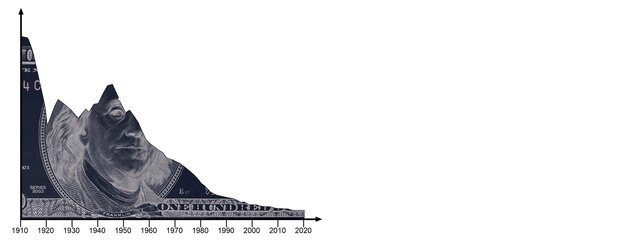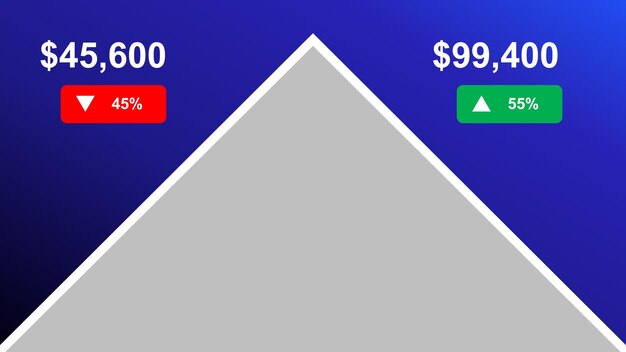Federal Reserve Rate Hike Alert: What to Expect in January 2025

In January 2025, the Federal Reserve is widely anticipated to raise interest rates by 0.25%, impacting everything from mortgage rates and savings accounts to investment strategies and consumer spending habits, requiring careful financial planning and awareness.
Get ready for changes in the financial landscape as an interest rate hike is expected. The **Alert: Federal Reserve Expected to Raise Interest Rates by 0.25% in January 2025** will ripple through the economy, affecting various aspects of personal finance.
Understanding the Federal Reserve’s Decision
The Federal Reserve plays a crucial role in maintaining the economic stability of the United States. Its decisions, particularly regarding interest rates, have far-reaching effects on individuals and businesses alike. Understanding these decisions is essential to navigating the financial landscape.
Why Raise Interest Rates?
The Federal Reserve raises interest rates as a tool to combat inflation and prevent the economy from overheating. When inflation rises above the Fed’s target, typically around 2%, increasing interest rates can help cool down spending and investment activity.
Economic Indicators Leading to the Hike
Several economic indicators can prompt the Federal Reserve to raise interest rates. These include a strong labor market with low unemployment, increasing consumer spending, and rising inflation rates. Tracking these indicators provides insight into potential future rate hikes.
- Inflation trends and targets
- Employment data and wage growth
- GDP growth and consumer spending
- Housing market activity
The Federal Reserve’s decision to raise interest rates is based on a thorough analysis of economic data. By carefully monitoring these indicators, individuals can better anticipate future rate hikes and adjust their financial strategies accordingly. This proactive approach helps in mitigating potential negative impacts and capitalizing on emerging opportunities.

Impact on Mortgage Rates
One of the most direct impacts of a Federal Reserve interest rate hike is on mortgage rates. Whether you’re planning to buy a home or refinance your existing mortgage, understanding how these rates are affected is critical.
How Rate Hikes Affect Home Buyers
When the Federal Reserve raises interest rates, mortgage rates tend to follow suit. This means that the cost of borrowing money to buy a home increases, potentially making homeownership less affordable for some individuals.
Refinancing Considerations
For homeowners looking to refinance their mortgages, higher interest rates can present a challenge. Refinancing may become less attractive as the potential savings from a lower rate diminish.
- Adjustable-rate mortgages (ARMs)
- Fixed-rate mortgages
- Impact on monthly payments
- Long-term affordability
The impact on mortgage rates can be significant for both prospective homebuyers and current homeowners. By understanding how rate hikes affect mortgage options, individuals can make informed decisions about buying or refinancing their homes, ensuring they align with their financial goals and capabilities.
Effects on Savings Accounts and CDs
While higher interest rates can make borrowing more expensive, they can also benefit savers. Understanding how these changes affect savings accounts and certificates of deposit (CDs) is important for maximizing your returns.
Increased Savings Account Yields
Following a Federal Reserve rate hike, banks often increase the interest rates they offer on savings accounts. This means that consumers can earn more on their savings, providing a modest boost to their financial reserves.
CD Rate Adjustments
CDs typically offer higher interest rates than standard savings accounts. As the Federal Reserve raises rates, CD rates also tend to increase, making them a more attractive option for those looking to lock in a higher return.
Understanding the effects of interest rate changes on savings accounts and CDs can help individuals make informed decisions about where to store their cash. By strategically managing savings, consumers can take advantage of higher yields and grow their wealth more effectively. This proactive approach ensures that savings are working optimally in a changing financial environment.

Implications for Credit Card Rates
Credit card rates are often directly tied to benchmark interest rates set by the Federal Reserve. Therefore, a rate hike can lead to higher borrowing costs for credit card users.
Variable vs. Fixed Rates
Most credit cards have variable interest rates, meaning their rates can change with market conditions. In contrast, fixed-rate cards offer a stable rate, but they are less common.
Strategies for Managing Debt
With rising credit card rates, it becomes more important to manage debt effectively. Strategies include paying off high-interest balances, transferring balances to lower-rate cards, and avoiding new debt.
- Balance transfers
- Debt consolidation
- Budgeting and spending habits
- Negotiating with creditors
Understanding the implications of interest rate changes on credit card rates is essential for managing debt responsibly. By employing effective strategies, consumers can minimize the impact of higher rates and maintain their financial stability. This proactive approach helps in avoiding unnecessary debt and keeping finances under control.
Investment Strategy Adjustments
A Federal Reserve interest rate hike can impact various investment vehicles, including stocks, bonds, and real estate. Understanding these effects is crucial for making informed investment decisions.
Stock Market Impact
Higher interest rates can sometimes lead to a decrease in stock market valuations. This is because higher rates can make borrowing more expensive for companies, potentially slowing down growth and profitability.
Bond Market Dynamics
Bond prices typically move inversely to interest rates. When rates rise, bond prices tend to fall, and vice versa. Investors should be aware of these dynamics when managing their bond portfolios.
Adjusting investment strategies in response to Federal Reserve rate hikes can help investors protect their portfolios and capitalize on new opportunities. By understanding the dynamics of the stock and bond markets, individuals can make informed decisions that align with their financial goals and risk tolerance. This proactive approach ensures that investments remain resilient in a changing economic environment.
Preparing Your Finances for the Rate Hike
Preparing your finances for a Federal Reserve interest rate hike involves taking proactive steps to mitigate potential negative impacts and capitalize on opportunities. Planning ahead and making informed financial decisions is key.
Reviewing Your Budget
Start by reviewing your budget to identify areas where you can cut expenses and save money. Reducing unnecessary spending can free up cash to pay down debt or invest.
Building an Emergency Fund
An emergency fund can provide a financial cushion during unexpected events. Aim to have at least three to six months’ worth of living expenses saved up in a readily accessible account.
- Tracking expenses
- Setting financial goals
- Consulting a financial advisor
- Diversifying investments
Preparing your finances for a Federal Reserve interest rate hike is a crucial step in maintaining financial stability. By reviewing your budget, building an emergency fund, and taking proactive measures, you can weather economic changes with confidence. This comprehensive approach ensures that your financial health remains strong, regardless of external economic pressures.
| Key Point | Brief Description |
|---|---|
| 📈 Rate Hike | Federal Reserve expected to raise rates by 0.25% in January 2025. |
| 🏠 Mortgages | Expect higher mortgage rates affecting home buying and refinancing. |
| 💰 Savings | Savings accounts and CDs may offer improved yields. |
| 💳 Credit Cards | Credit card rates likely to increase; manage debt wisely. |
Frequently Asked Questions
▼
The Federal Reserve raises interest rates primarily to combat inflation and stabilize the economy. It helps to slow down spending and investment, preventing the economy from overheating.
▼
The rate hike will likely increase mortgage rates, making it more expensive to buy a home or refinance. Adjustable-rate mortgages will see immediate increases, while fixed rates may rise more gradually.
▼
Yes, you can expect to earn more interest on your savings account and CDs. Banks typically increase rates to attract and retain customers in response to Federal Reserve rate hikes.
▼
Focus on paying down high-interest balances as quickly as possible. Consider balance transfers to lower-rate cards or debt consolidation options to manage your debt effectively.
▼
Diversify your portfolio and consider consulting a financial advisor. Be prepared for potential market volatility and adjust your investment strategy to align with your risk tolerance and financial goals.
Conclusion
As the Federal Reserve prepares to raise interest rates in January 2025, it’s crucial to understand the potential effects on your personal finances. From mortgage rates and savings accounts to credit cards and investments, taking proactive steps can help you navigate these changes and maintain financial stability. Stay informed, review your budget, and make informed decisions to secure your financial future.
